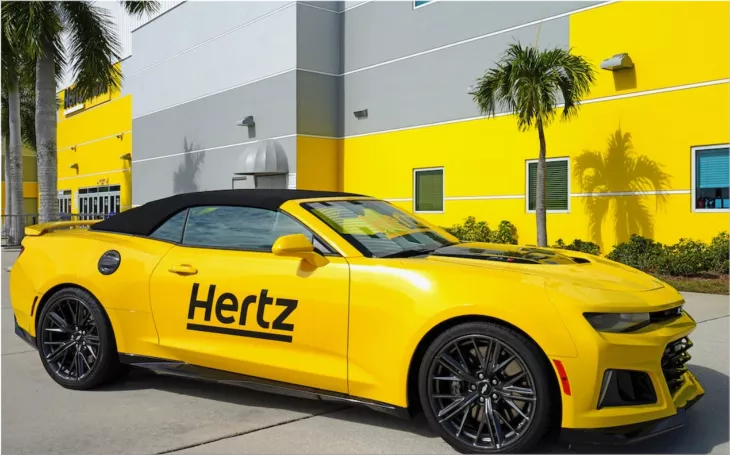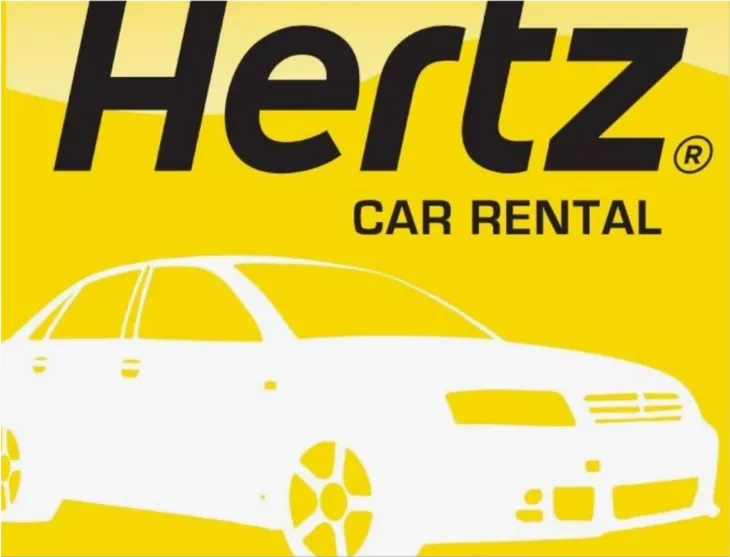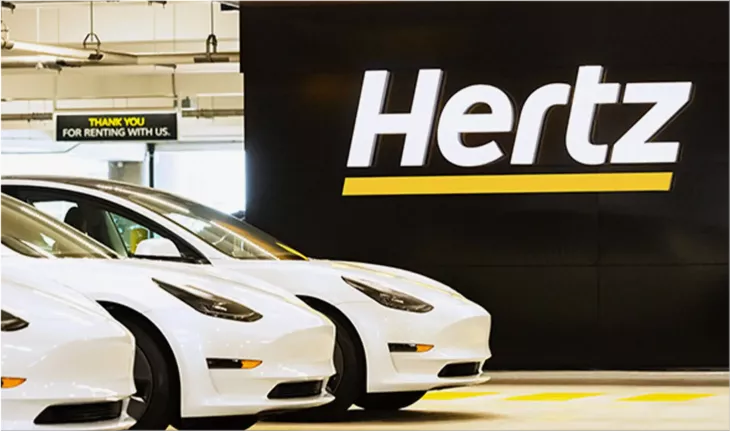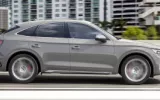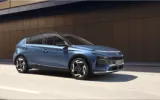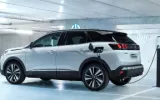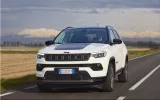Hertz, one of the world’s largest car rental companies, has made a surprising announcement: it is selling off a third of its electric vehicle (EV) fleet, totaling about 20,000 cars, and using the proceeds to buy more gasoline-powered vehicles. After Hertz invested heavily in EVs in recent years, this decision has raised eyebrows and questions in the automotive industry. What drove Hertz to make such a drastic move? What does it mean for the future of EVs in the rental market? And what are the implications for the environment and the consumers?
The Cost of Going Electric
Hertz’s CEO, Stephen Scherr, explained the rationale behind the EV sell-off in a recent analyst call. He cited two main factors that made EVs less profitable and more problematic for Hertz than conventional cars: higher damage-repair costs and higher depreciation.
According to Scherr, EVs are more expensive to fix than gasoline cars, especially when collisions occur. He said that “collision and damage repairs on an EV can often run about twice that associated with a comparable combustion engine vehicle.” This is because EVs have more complex and sensitive components, such as batteries, electric motors, and power electronics, that require specialized tools and technicians to repair. Additionally, EVs are more likely to be totaled in a crash, as the battery packs can be damaged beyond repair or pose a fire risk.
Another issue that Hertz faced with EVs was depreciation or the loss of value over time. Scherr said that the resale value of Hertz’s used EVs had dropped significantly due to the rapid price declines of new EVs. He blamed this trend on Tesla, which makes up about 80% of Hertz’s EV fleet and has been aggressively cutting its vehicle prices to gain market share and reach profitability. Scherr said that “the MSRP declines in EVs throughout 2023, driven primarily by Tesla, have driven the fair market value of our EVs lower than last year, such that a salvage creates a larger loss and, therefore, greater burden.”
Hertz estimated that it would take a loss of about $245 million due to depreciation on the EVs, an average of about $12,250 per vehicle. This is a significant hit for a company that emerged from bankruptcy in June 2023 and is still struggling to recover from the pandemic-induced travel and rental demand slump.
The Benefits of Going Back to Gas
By selling off 20,000 EVs, Hertz hopes to generate about $500 million in cash, which it plans to reinvest in buying more gasoline-powered vehicles. Scherr said this would allow Hertz to “balance a disproportionate number of lower margin rentals and reduce damage expense associated with EVs.”
Hertz expects to benefit from the lower acquisition, maintenance, and repair costs of gasoline cars, as well as the higher resale value and demand in the used car market. Scherr said that Hertz would also be able to offer more variety and choice to its customers, who may prefer gasoline cars for their longer range, faster refueling, and lower rental rates.
Hertz also claimed that its decision to reduce its EV fleet was not a sign of giving up on the electrification of the rental industry but rather a strategic and agile move to adapt to the changing market conditions. Scherr said that Hertz would continue to monitor the EV market, adjust its fleet mix accordingly, and remain committed to its sustainability goals and initiatives.
The Impact of Hertz’s Decision
Hertz’s decision to sell 20,000 EVs and buy more gasoline cars has sparked mixed reactions and debates in the automotive industry. Some analysts and experts have praised Hertz for being pragmatic and realistic and for making a smart business move that would improve its financial performance and customer satisfaction. Others have criticized Hertz for being short-sighted and irresponsible and for undermining the progress and potential of EVs in the rental market and the broader transportation sector.
One of the main concerns that Hertz’s decision has raised is the environmental impact. EVs are widely seen as a key solution to reducing greenhouse gas emissions and combating climate change, as they produce zero tailpipe emissions and can run on renewable energy sources. By selling off 20,000 EVs and replacing them with gasoline cars, Hertz is effectively increasing its carbon footprint and contributing to more air pollution and global warming.
Another concern that Hertz’s decision has raised is the consumer impact. EVs are becoming more popular and affordable among consumers, as they offer many benefits, such as lower fuel and maintenance costs, better performance and driving experience, and various incentives and rebates. By selling off 20,000 EVs and buying more gasoline cars, Hertz is limiting the availability and accessibility of EVs for its customers, who may want to try out or switch to EVs for their rental needs. Hertz is also missing out on the opportunity to educate and influence its customers on the advantages and challenges of EVs, and to foster a more positive and supportive attitude towards EV adoption.
The Future of EVs in the Rental Market
Hertz’s decision to sell 20,000 EVs and buy more gasoline cars is significant and controversial, but it is not necessarily definitive or permanent. Hertz has stated that it will monitor the EV market, adjust its fleet mix as needed, and remain committed to its sustainability goals and initiatives. Hertz has also said it will retain about 40,000 EVs in its fleet, which still represents about 7% of its total fleet and is one of the largest EV fleets in the rental industry.
Hertz is not the only player in the rental market that is involved in the EV space. Other major rental companies, such as Enterprise, Avis, and Sixt, have added EVs to their fleets, albeit at a smaller scale and pace than Hertz. These companies have also partnered with EV manufacturers, such as Tesla, Volkswagen, and Hyundai, to offer their customers more EV options and services. Additionally, some niche rental companies, such as Turo, EVgo, and Maven, specialize in EV rentals and sharing and cater to consumers' growing demand and interest for EVs.
The rental market is an important and influential segment of the transportation sector, as it serves millions of customers every year, and it has the potential to shape and shift the preferences and behaviors of consumers towards EVs. Hertz’s decision to sell 20,000 EVs and buy more gasoline cars may seem like a setback or a reversal for the electrification of the rental industry, but it may also be a temporary or a tactical move that reflects the current challenges and opportunities of the EV market. The future of EVs in the rental market is still uncertain and evolving, but it is also promising and exciting.





